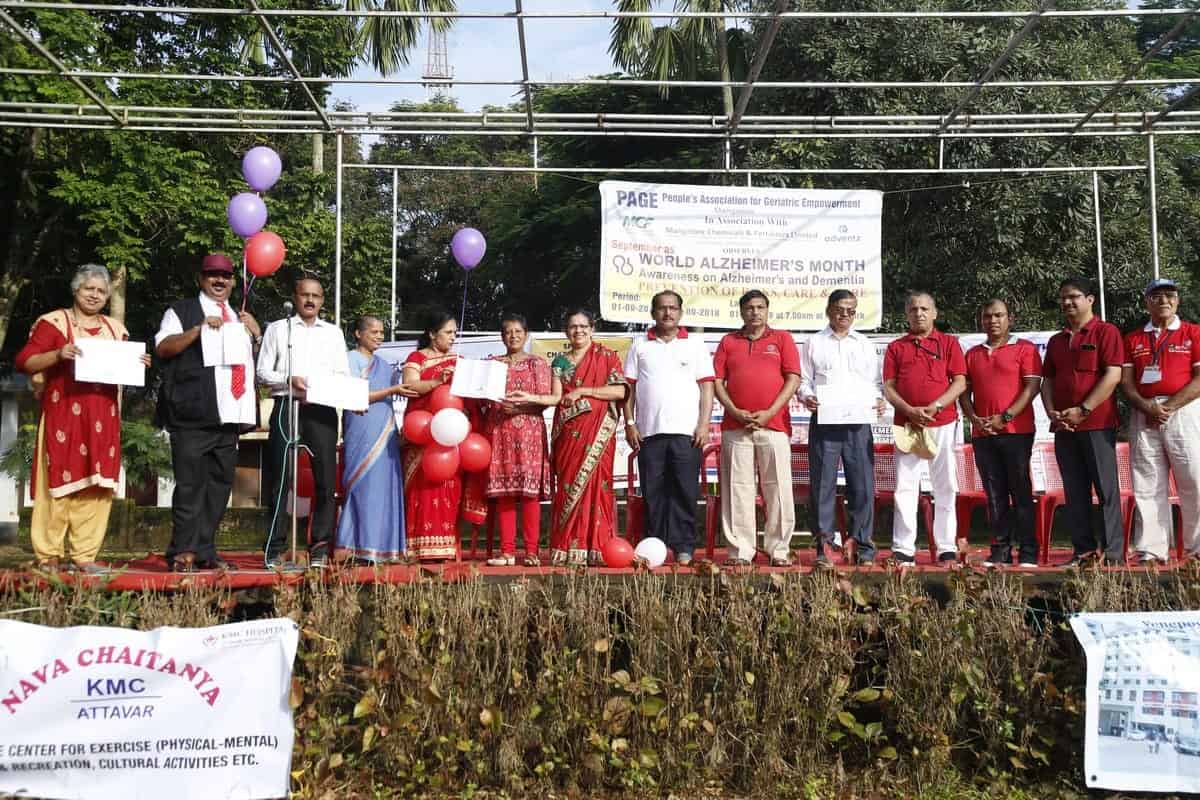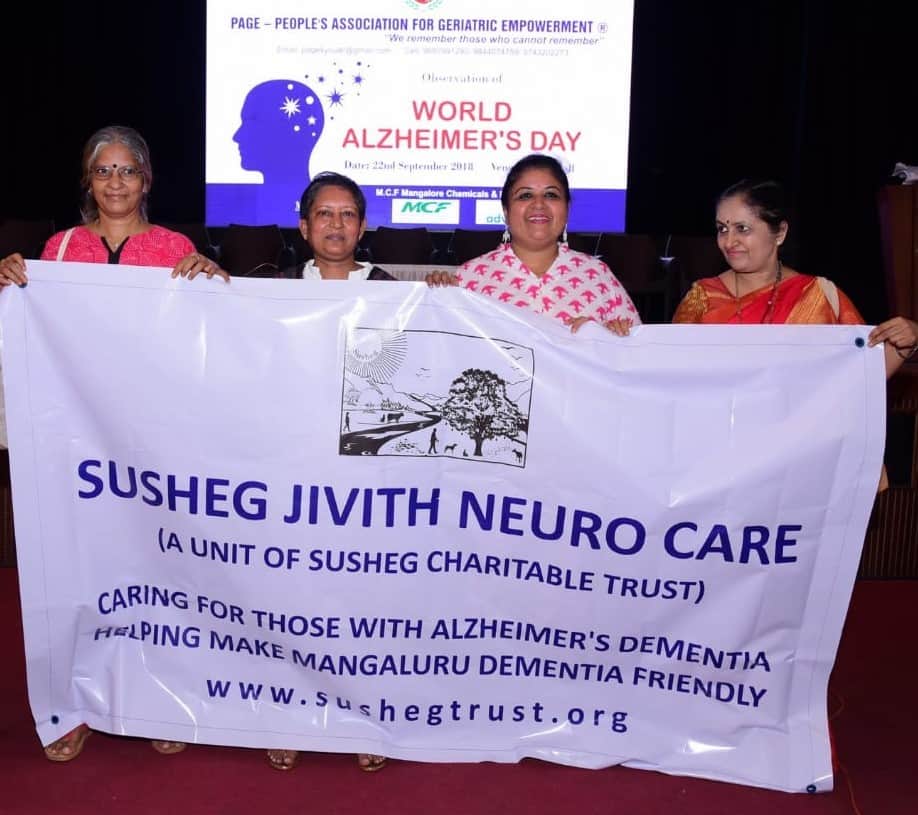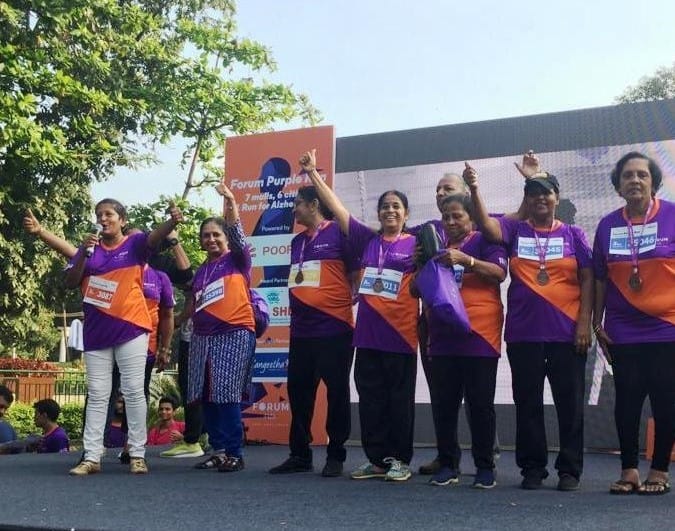SUSHEG JIVITH NEURO CARE
…… Residential Care for Dementia And Other Neurological Illnesses
RESIDENTIAL CARE
Providing residential care to dementia patients, especially those battling Alzheimer’s disease (AD) is the primary objective of Susheg Trust. Our country has been severely lacking in providing care for people with dementia and similar diseases.
India has over four million people suffering from dementia, a majority of them with Alzheimer’s disease (AD) characterised by loss of memory and disorientation in early stages. The number is likely to double by 2030. Still, there are hardly any institutes providing care for these people. They are mostly allowed to be taken care of by loved ones and family members, the burden often falling on one person from among them. Even coastal districts of Karnataka that have hospitals, nursing homes, psychiatric institutions, old age care, homes for destitute and the homeless do not have a single bed for those with dementia.
Susheg Trust, from its inception, considered providing residential care under professional supervision as the need of the hour in order to ensure the dignity of every person who is battling this disease.
Dementia is a group of diseases of the brain whereby the brain loses it’s ability to function. Alzheimer’s disease is the most common among them, accounting for over 60% of all dementia patients.
AD is a disease that causes brain connections and cells to degenerate and die, causing destruction of memory and other functions of the brain. Loss of memory and disorientation are the first signs of AD. It is a progressive disease that worsens with time. AD has no cure. Exact causes of the disease are not known. Named after Dr. Alois Alzheimer, who was the first to recognize and write about it, AD affects brain functions, including memory, behaviour and reasoning.
Though AD is incurable, it is possible to slow down the progression of the disease and take care of some of the symptoms with medications and other cognitive behavioural interventions, thereby attempting to enhance the quality of life in those diagnosed with it.


Caring for people with AD is a daunting task. In addition to lack of memory, the patients lack hygiene, remain disoriented, fail to recognize people, places and objects, display irritability and aggression and wander around. It is a round-the-clock task for the caregiver without respite.
Lack of respite, constant vigilance, inability to have any private time, being locked at home with patient year after year, takes a toll on the mind and body of the loved ones caring for the patient. Worst of all is witnessing the steady deterioration of the person who only a few years earlier was probably the home-maker, bread winner, the head of family, a mother and the go-to person whom you turned to for advice, help and solace. The patient suffers… the care giver suffers even more.
Understanding the need to provide professional care for the patients and respite and solace for their loved ones, Susheg Trust commenced its humble endeavour by deciding to build a residential care facility at Manjanakatte, in rural Mangalore, on an acre of land donated by the author of the Trust.
The facilities include spacious rooms, nutritious food, 24/7 Nursing care, medical assistance by visiting physicians, symptom relief, neuro-psychological stimulation, physiotherapy, recreation and a garden.
Provision for partner/loved one to stay with patient too is planned.
Professional residential care benefits the patients in many ways compared to home care. The nurses and nursing assistants are trained to manage the patients. Mental stimulation, physical exercises, recreation, availability of open space help mitigate patient anxiety and frustration. Visiting psychologists and geriatric specialists provide guidance on neuro-care and diet. The place is secured to prevent wandering. While the disease cannot be cured, the deterioration can be stemmed to some extent and the patient can live with respect and dignity.
The relief to the caregivers and loved ones is even more. Bringing a person one loved to a care facility may hurt to begin with. The peace of mind that follows that the loved one is in safe hands, outweighs the hurt.
Dementia patients are upset by noise, visitors and change in surroundings. A place away from the city in a serene environment, clean air and availability of open space will help them in more ways than one.

The building is designed for dementia patients. It is on an acre of land. The structure is about 30000 sq. ft. that can cater for 40 to 50 patients in 27 patient rooms. It is in rural Mangaluru, 25 kms away from Mangaluru City off the Mangaluru- Moodbidri highway. The facility has a clinic, prayer room, medical store, place for physiotherapy, music therapy, physical exercises, board games, mentally stimulating exercises, wide corridors and a garden.
Susheg Trust has signed a Memorandum of Understanding with Yenepoya Medical College and Hospital, Deralakatte, Mangaluru for medical assistance and service of our patients when needed.

A MOU was signed with Tejasvini College of Physiotherapy in order to render much needed physiotherapy for our residents.
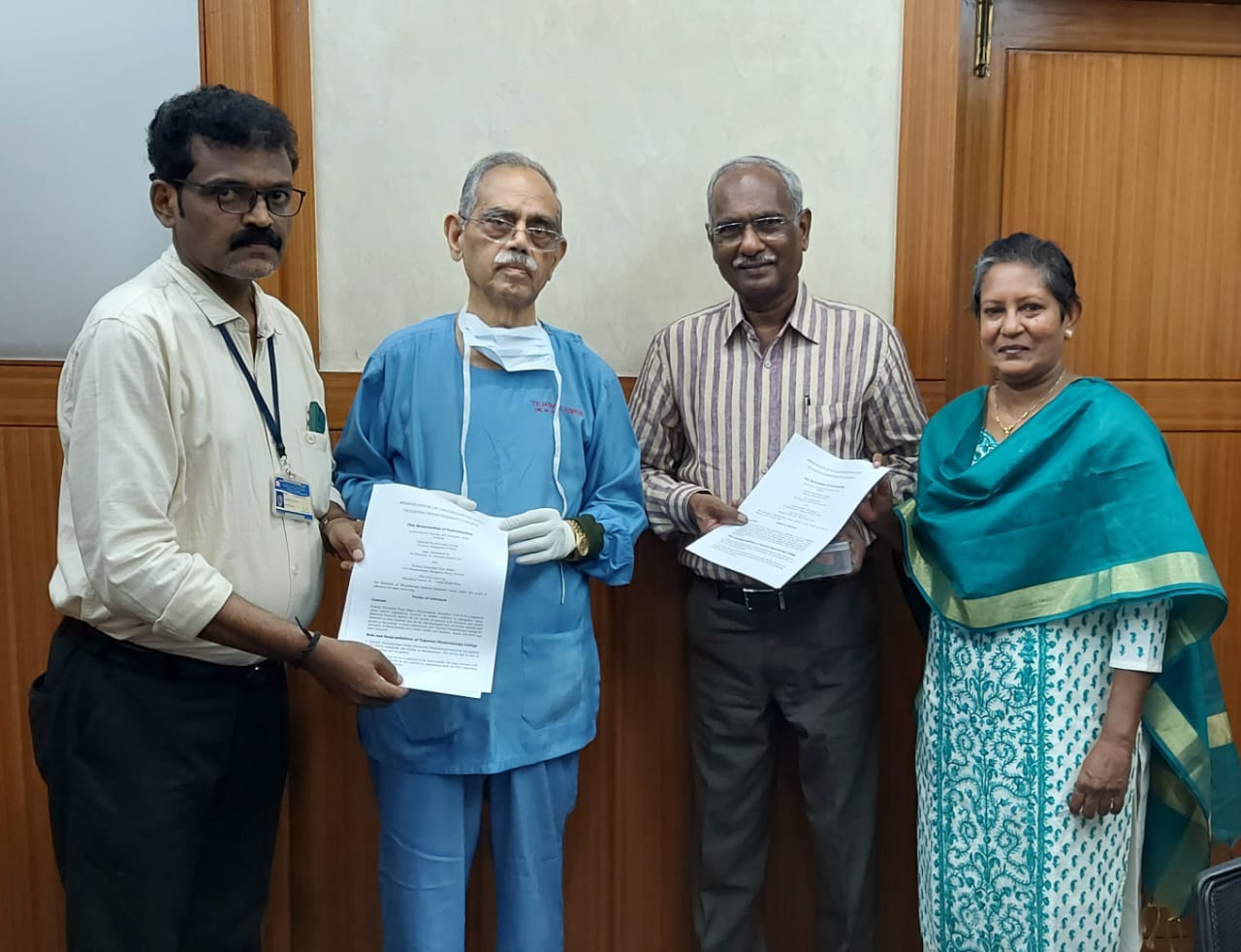
Challenges:
Staff and finance are the main challenges faced by SJNC. Unlike in hospitals where a caregiver is provided by the family to take care of the sundry needs of the patient, at SJNC all tasks are performed by the nurses. The workload, the unwavering attention, irritation due to erratic patient behaviour makes nurses to think thrice before working for a dementia facility.
The demands by AD patients require us to maintain a 1:1 patient to nurse ratio in addition to requiring administrator, cook, house maintenance and a social worker to engage them in stimulating activities. The cost per patient therefore works out to Rs 30000 to 35000 per month per patient.
Loved ones of all our patients contribute voluntarily towards the cost and the deficiency is filled in by our kind donors.
Donations in cash and kind will help us greatly to provide care for patients from financially weaker families.
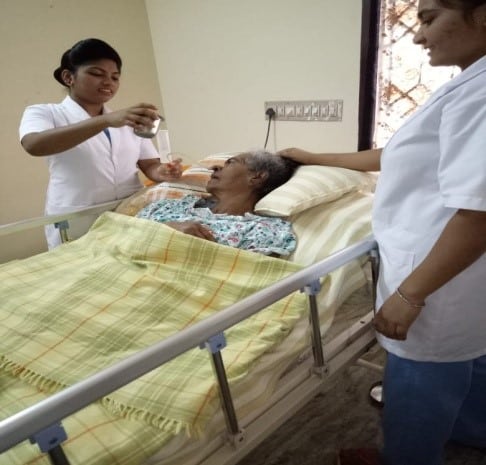
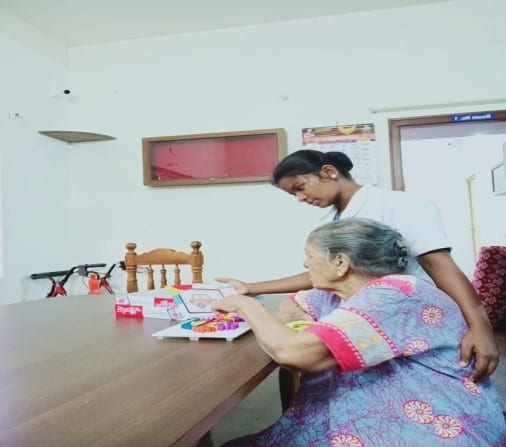
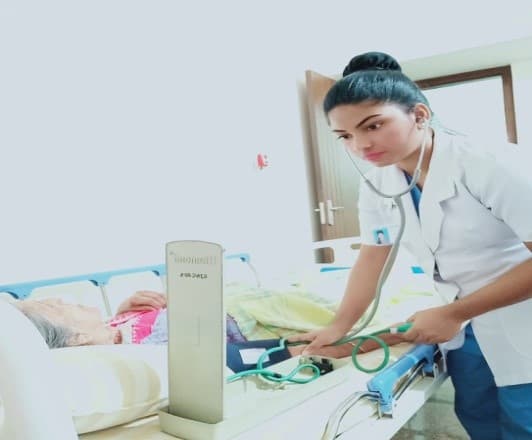
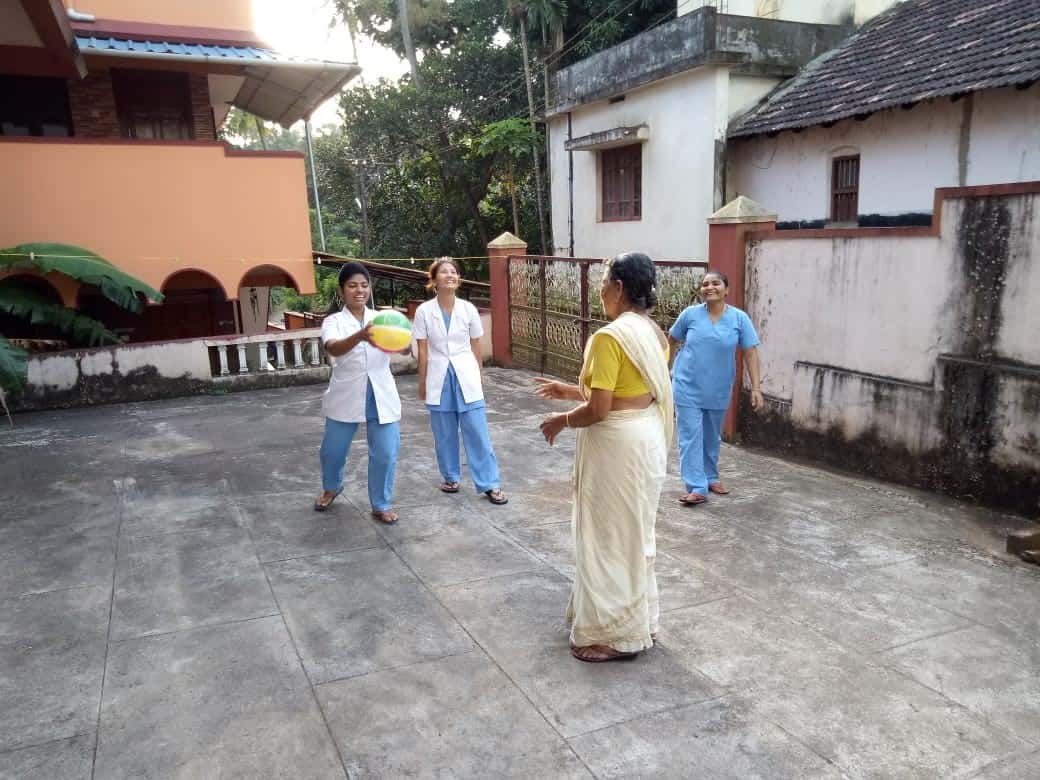
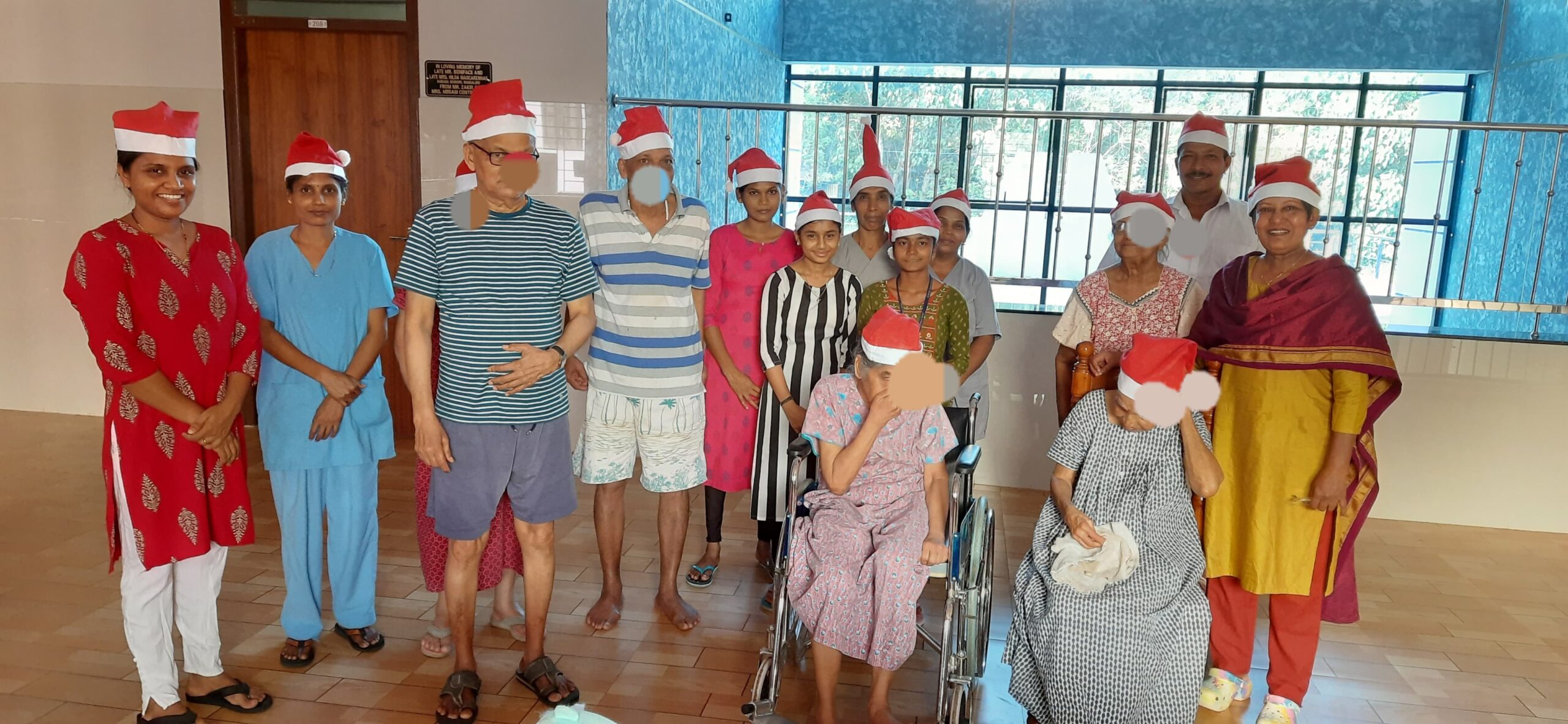
COUNSELLING CAREGIVERS
Dementia, especially Alzheimer’s disease requires care and attention markedly different from nursing the patients in the hospitals. Reasons are many. The behavioural issues of the patient, forgetfulness, aggressiveness, self-pity, confusion are some of the issues faced by the caretakers. During advanced stages of the disease, the patient becomes entirely dependent on the caregiver.
The therapeutic relationship between nurse and patient is central to high quality nursing care. Due to the constant and unpredictable demands and conditions of the patients, the nurses and care takers by themselves can be under great stress and despair leading to burnout. A plan to constantly motivate, counsel and upgrade knowledge is essential to keep the morale high and to approach every situation with empathy and confidence.
Susheg Trust addresses these issues by providing in-house training in:
-> Dementia, its variants, causes and mitigating techniques
-> Patient management techniques
-> Communication, problem-solving, stress management and other life skills
The directors remain in regular touch with the staff, helping them to keep their spirits high. Motivation in small measures go a long way in making the staff belong. Regular staff meetings to address concerns, celebrating festivals and birthdays are some ways we try to bring cheer.
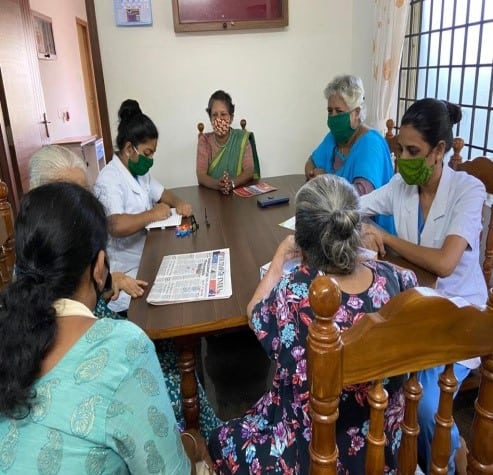
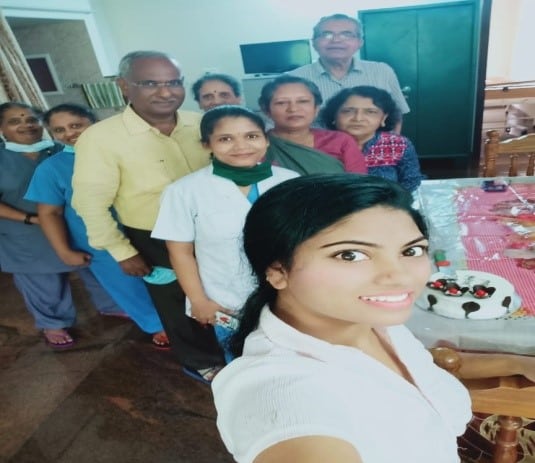
TRAINING
We intend starting training people in nursing so that they can be employed as Nursing Assistants. We wish to choose interested youth and train them in patient care. The nursing aides thus trained will be either employed at our facility or can find employment as home-care providers for in-home care of patients. The training will be provided free of cost with an aim of empowering youth from economically disadvantaged sections of society.
LEARNING
Trustees and Advisors of Susheg Trust make all possible attempts to upgrade their knowledge about Dementia and similar neurological illnesses. Attending physical and online courses and seminars has become a routine to many. It is very important for the Team to keep abreast of the trends to better serve the patients.
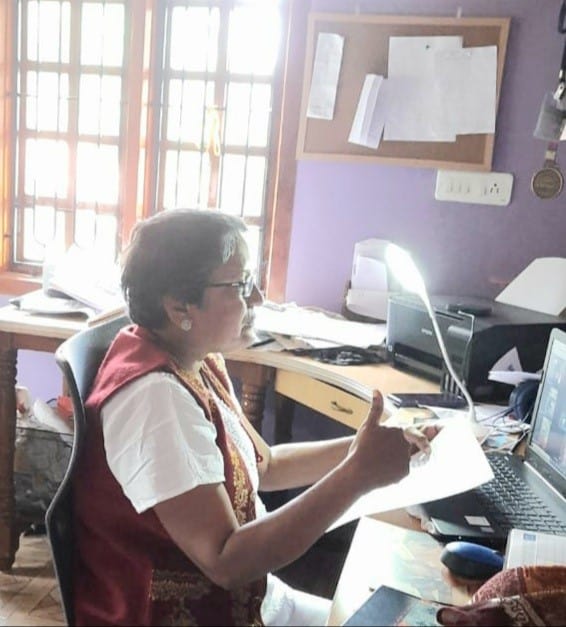
AWARENESS PROGRAMMES AND OTHER ACTIVITIES:
The first awareness programme was conducted by Dr. Lavina Noronha for the elderly in Milagres Church Hall, in June 2016. We had 25 eager seniors listening to her, and received very well.
Susheg Trust is a member of PAGE (People’s Association in Geriatric Empowerment) which conducts awareness programs on dementia.
September is Alzheimer’s Awareness Month. Susheg Trust is an active participant in the activities conducted like Memory Test, Alzheimer’s quiz, motivational speeches and other activities
In September 2018, Mrs. Loretta Pinto conducted an awareness program at Nazareth Niwas, Home for the Elderly, at Bondel, Mangalore.
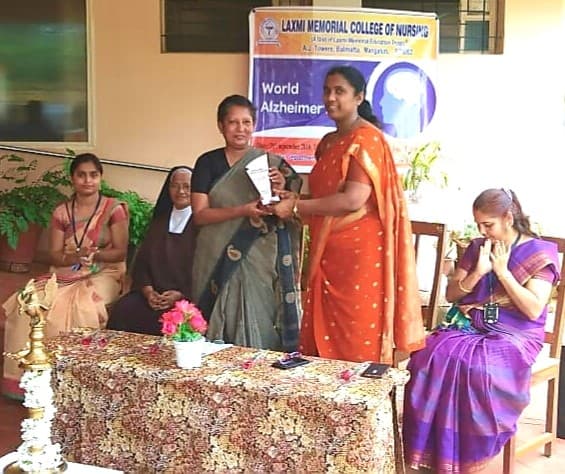
An Alzheimer’s presentation was given by Dr. Lavina Noronha and Mrs. Loretta Pinto at Rotary Midtown in January, 2019. It was attended by 30 odd members.
An Alzheimer’s presentation was given to Rotary Club, Central by Dr. Santosh Prabhu in March, 2019. It was attended by 30 odd members.
On 26th October, 2019 Mrs. Loretta Pinto chaired a session in Yenepoya Medical College and Center, CME on Alzheimer’s and related behaviours. Dr. Lavina Noronha also attended.
PARTICIPATION
Susheg Trust printed and published handouts in English and Kannada describing the cause and symptoms of Alzheimer’s dementia.as part of Alzheimer’s Awareness Month celebrations in Mangalore
